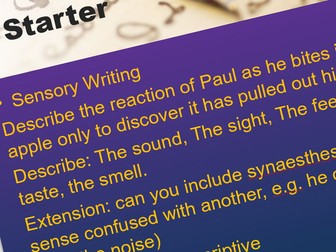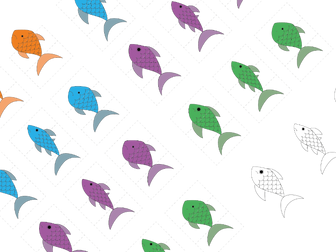
Curious Incident of the Dog in the Night-Time
This is a whole set of lessons for Curious Incident. It includes worksheets for different parts of the sessions. Slide 41 includes a link to a documentary about autism.
Spaced learning is a fantastic way to teach an entire novel or play in one lesson. The process is simple: The students take a multiple choice quiz at the start of the lesson. They do not mark it until the end. You then go through the summary as you take the students through the presentation. Make sure you familiarise yourself with the summary and the ppt. The students just listen. They do not take notes. Then you do an unrelated activity I like to give the students a piece of paper, ask them to write 3 goals for their year on (these can literally be any goals like: complete a computer game or say hello to a new friend) then create a paper aeroplane and throw them at the target on the board. The point of the unrelated task is it allows the brain to start processing the information they have just absorbed. You then take them through the presentation again This time the presentation has pictures too . Again the students just listen.
After this, the students complete the multiple choice quiz again. Then the students mark both the quizzes. This is where the impact is really seen. They can see their progress of knowledge from the start of the lesson to the end. I have never seen a student not improve considerably. They are then equipped for the rest of the term with the main themes, context and story outline all clear.

